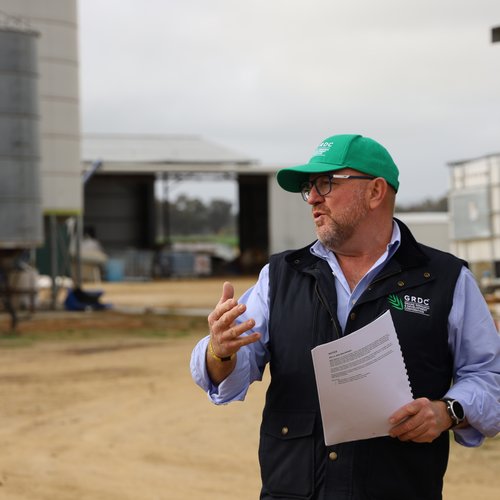ABARES Executive Director Steve Hatfield-Dodds said production in key cropping regions in New South Wales, Victoria and South Australia was boosted by favourable conditions during the critical grain development phase.
“Crops in these states were generally in very good condition at the end of winter, and the favourable rainfall during September and October was perfectly timed for the growth cycle,” Dr Hatfield-Dodds said.
“Production is expected to be a record high in New South Wales, the second highest on record in Victoria and well above average in South Australia.
“Overall, for Australia, the December forecast is a 7.4 per cent upward revision from the figure in the September 2020 Australian Crop Report.
“For the major winter crops, wheat production is forecast to increase by 106 per cent from last year to 31.2 million tonnes, the second highest on record.
“Barley production is forecast to increase by 33 per cent to 12 million tonnes, the second highest on record, and canola production is forecast to rise by 59 per cent to 3.7 million tonnes, the fifth highest on record.
“Chickpeas production is forecast to increase by 162 per cent to 737,000 tonnes and oats production is forecast to increase by 89 per cent to 1.6 million tonnes.”
Dr Hatfield-Dodds said production forecasts for Western Australia and Queensland have been adjusted to reflect the less than favourable conditions in late winter and early spring.
“We still expect these two states to record significantly increased production on last year’s levels, but have revised down those forecasts slightly taking into account less than expected rainfall,” Dr Hatfield-Dodds said.
The ABARES Australian Crop Report - December 2020 also notes:
- The latest three-month climate outlook (December to February), issued by the Bureau of Meteorology on 19 November 2020, indicates summer rainfall is likely to be above average in most summer cropping regions.
- Area planted to summer crops in 2020–21 is forecast to rise by 211 per cent from the drought affected levels of 2019–20 to around 1.1 million hectares, which is six per cent below the 10-year average to 2019–20 due to area planted to cotton forecast to be below its long term average.
Area planted to grain sorghum and cotton is forecast to rise significantly. - Summer crop production is forecast to rise by 322 per cent to 3.7 million tonnes, reflecting the expected increase in planted area and an assumed return to average yields from the historically low yields in 2019–20.




